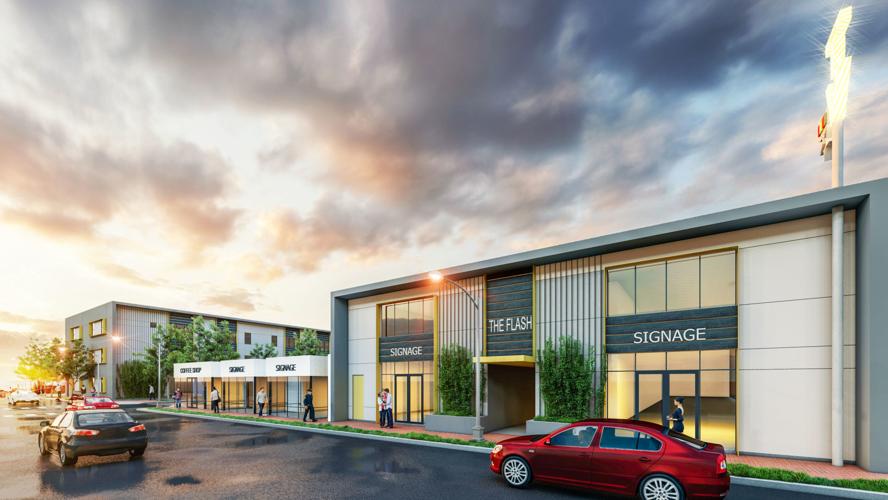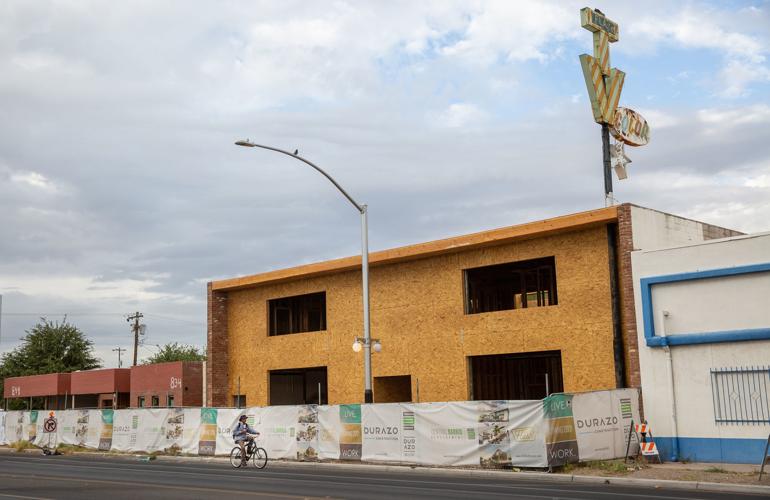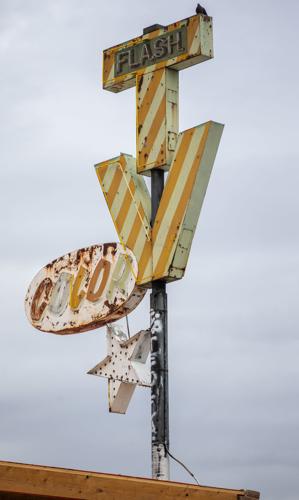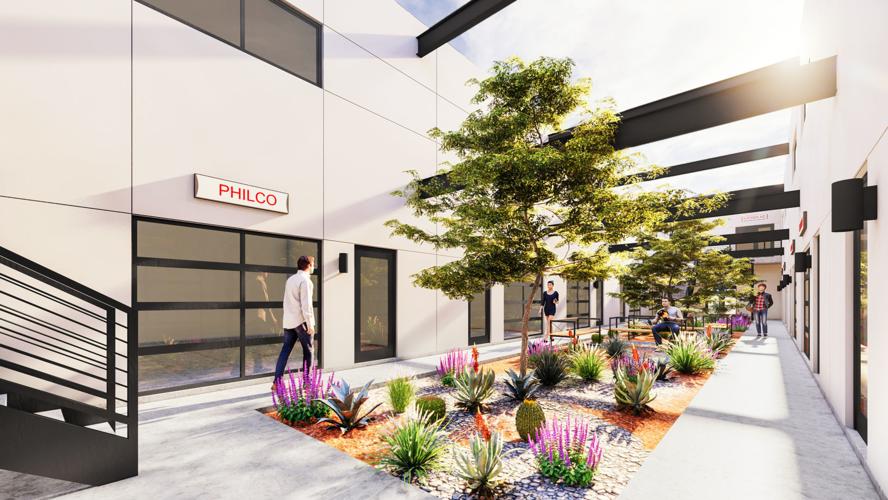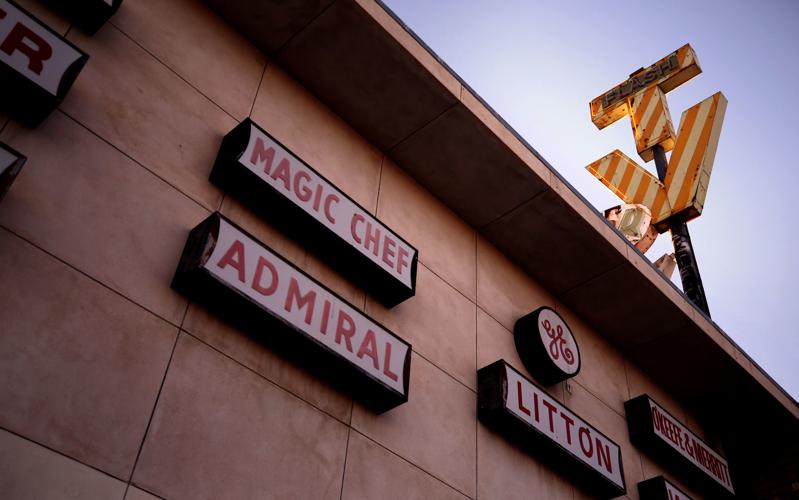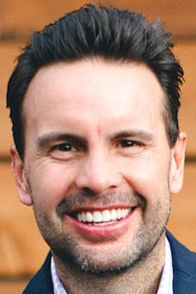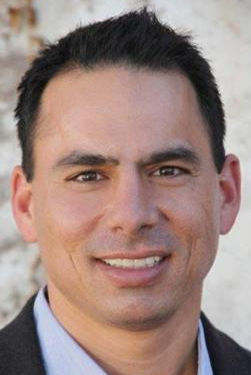It’s been decades since the neon sign atop the old Flash TV & Appliance Store has lit up Sixth Avenue, just south of downtown Tucson.
But if all goes according to plan, by the end of the year, it will shine brightly once again as part of a development that will fuse five retail and office spaces with 52 below-market-rate apartments.
Appropriately named “The Flash,” the project by Central Barrio Development and Marcel Dabdoub will encompass three properties along Sixth Avenue near 19th Street:
- The two-story Flash TV building, which will be redeveloped into 19 live/work spaces and two office/retail spaces that face Sixth Avenue.
- A neighboring retail building, which will be redeveloped into three commercial spaces.
- An adjacent lot across the street where a new three-story, 33-unit apartment building is slated to go up.
The project seeks to not only preserve and restore the iconic neon sign, but elements of the building’s classic mid-century style as well.
Built in 1965, Flash TV served Tucsonans for decades, which was part of the charm for Central Barrio Development owner Hector Jimenez.
“Our intent from the beginning was to rescue and keep the character and integrity of an existing building where generations of Tucsonans shopped for their appliances,” he said. “Our goal is to preserve the local identity and sense of place while enhancing the surrounding area.
“It’s crucial that we are respectful of the history and culture of the Barrio Santa Rosa neighborhood.”
The main, 21,000-square-foot, Flash TV building will feature 12 “live/work” units, meaning they have a commercial/office area on the ground floor and a residential component on the second floor.
Each of those one-bedroom, one-bathroom units — which total about 922 square feet — have a garage door that opens up to an interior, central courtyard.
There will also be five studios within the main building that are on average 480 square feet; and two larger studios that are about 650 square feet.
Jimenez anticipates that the live/work model will appeal to a workforce that has become accustomed to working from home since the coronavirus pandemic hit Tucson in March, as well as entrepreneurs, artists and others.
The new construction apartment building has 33 units, 25 of which are one bed, one bath, and eight of which are one bed, one bath and a den.
On-site and street parking will be available.
A 720-square-foot unit at The Flash would cost a renter on average $1,100 Jimenez said.
That price point is lower than rents found in downtown Tucson — about six blocks away, Jimenez said, noting that same apartment would go for about $1,800 within downtown.
The project is years in the making with developers purchasing the main property in 2016. The opportunity to buy the neighboring retail building came up later, followed by the property across the street.
With each new acquisition, project plans evolved.
Getting the properties at a good price, and rehabbing the two existing buildings has allowed the developers to make the price point more accessible, Jimenez said.
The project is in line with Central Barrio Development’s focus on adaptive reuse and urban infill development of small- to mid-size residential and commercial projects in Arizona.
Work is underway with the main building of The Flash expected to open by November or December, Jimenez said. The new three-story building is expected to be ready by March.
Durazo Construction, Inc. is the general contractor on the project and Bob Lanning of Lanning Architecture is the architect of record.
For more information, go to centralbarrio.com/the-flash or theflashtucson.com.


